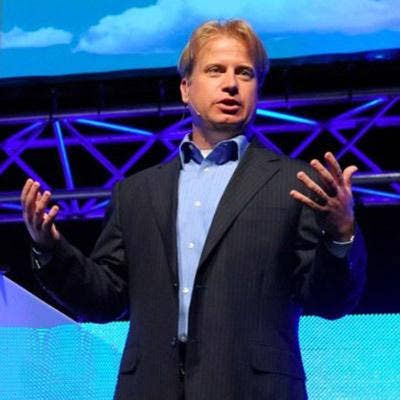10 Things You Need To Know About Pivotal's IPO

Pivotal's IPO
The cloud Platform-as-a-Service provider Pivotal software, in which Dell Technologies owns a majority stake, filed for an initial public offering Friday with the Securities and Exchange Commission.
The enterprise cloud computing vendor was founded in 2013, beginning as a spinoff of VMware and EMC. "Pivotal is aimed at taking advantage of the ever-growing cloud opportunities whether they be hybrid, on-premises or native public cloud," said Bob Venero, CEO of Holbrook, N.Y.-based solution provider Future Tech, a Dell EMC Titanium partner. "The majority of the Fortune 500 are utilizing Pivotal to build cloud applications in some fashion."
Here are 10 things you need to know about Pivotal's IPO, based on its S-1 filing with the SEC.

No Price Tags Yet
The company did not provide an initial price per share in its S-1 filing or disclose how much funding it is looking to raise with the IPO. However, Pivotal did propose a maximum aggregate offering price of $100 million. The company said the $100 million IPO is just a placeholder and is subject to change.
On September 8, 2017, Pivotal entered into an agreement with Silicon Valley Bank and other banks for a senior secured revolving loan facility in an aggregate principal amount not to exceed $100 million.

Dell Will Maintain 'Controlling Interest'
Although Pivotal did not specify how many shares it plans to sell, it did say Dell Technologies, run by CEO Michael Dell (pictured), would have a controlling stake after the public offering. Dell is currently Pivotal's majority stockholder. Once Pivotal goes public, Dell Technologies will own, indirectly through its subsidiaries -- including VMware -- 351,028,548 shares of outstanding Class B common stock.
"As a result, Dell Technologies will be able to exercise control over all matters requiring approval by our stockholders, including the election of our directors and approval of significant corporate transactions. Dell Technologies' controlling interest may discourage or prevent a change in control of our company that other holders of our common stock may favor," said Pivotal in the filing.

Potential Market Cap: $2.8 Billion
Pivotal has generated a total of $1.7 billion in three funding rounds. In April 2013, the company raised a total of $1.05 billion from EMC, VMware and General Electric. In 2016, Pivotal raised another $253 million from Ford and Microsoft, plus a $400 million debt-to-equity conversion by EMC. Pivotal is estimated to have a potential market capitalization of $2.8 billion.

Risk Factors
Pivotal listed many risk factors in its S-1 filing including having incurred substantial losses over the years and it may not be able to generate sufficient revenue to achieve and sustain profitability. Additional risks include having a limited operating history as an independent company that makes it difficult to evaluate prospects; as well as being controlled by Dell Technologies, which has the ability to exercise control over "all matters requiring approval by our stockholder," said the filing.

$163 Million Net Loss
Pivotal posted a net loss of $163 million on sales of $509 million in its fiscal 2018 ended Feb. 2, 2018. That revenue represented a 23 percent increase over the $416 million in revenue reported in fiscal 2017. Pivotal reported revenue of $280 million in fiscal 2016. The company has lost money every year since it was formed, recording net losses of $282 million in fiscal 2016, and $232 million in fiscal 2017.

Growth Depends On Partners
Pivotal's future growth depends in "large part" on the success of its partner relationships, said the filing. The company said it relies on channel partners, as well as Dell EMC, VMware and public cloud vendors, to increase sales and distribution of its software and services.
"If our partners do not effectively market and sell our offerings, choose to use greater efforts to market and sell their own products or those of our competitors or fail to meet the needs of our customers, our ability to grow our business and sell our offerings will be harmed," said the filing. "The loss of a substantial number of our partners, our possible inability to replace them or the failure to recruit additional partners could harm our results of operations."

73% Subscription Growth
Pivotal grew subscription revenues by 73 percent in fiscal year 2018 to $259 million, with a total of 319 subscription customers. Pivotal's cloud-native Platform-as-a-Service solution, Pivotal Cloud Foundry, combines open-source software and proprietary software with the ability to operate and manage software across private and public cloud environments such as Amazon Web Services, Microsoft Azure, Google Cloud Platform, VMware vSphere and OpenStack.

Chad Sakac
Last month, Chad Sakac, one of Dell EMC's and the storage industry's best-known technologists, moved to Pivotal to drive improved integration of the Pivotal Container Service and Pivotal Cloud Foundation with the rest of Dell. Sakac was formerly president of Dell EMC's Converged Platforms and Solutions Division. He started at EMC in late 2004 when his previous company, Allocity, was acquired by EMC. He was one of the leaders arranging the joint engineering and alliance with VMware after it was acquired by EMC. He was president of EMC's global systems engineering for four years before EMC was acquired by Dell.

Pivotal-Dell Relationship
In its filing, Pivotal said its competitive strengths in the market include being the one of the first movers in cloud-native transformations, owning an enterprise-grade software platform integrating open source technologies, blue-chip customer adoption and a large and growing Pivotal Cloud Foundry ecosystem.
Pivotal said, following the acquisition of EMC by Dell in 2016, that the company initially received certain back office and other administrative services from Dell EMC and VMware. However, over time "we have implemented our own systems and processes, reducing our reliance on these partners for most of these services," said the filing. Today, Pivotal jointly markets and sells products and services with Dell EMC and VMware.

Dell Looking At IPO
Pivotal's planned public offering comes on the heels of Dell Technologies ongoing consideration of strategic options for itself that includes going public or merging with its subsidiary VMware. Dell CEO Michael Dell said earlier this year that his Round Rock, Tex.-based company is evaluating the two "potential business opportunities" with the desire to grow the company "even faster and thrive in the very dynamic IT marketplace."
The potential scenarios were triggered by the passage of the federal Tax Cuts and Jobs Act bill passed by Congress in December. The bill limits the tax deductibility of interest payments to 30 percent of a company's earnings before interest, taxes, depreciation and amortization (EBITDA). In an editorial for The Hill last December, Michael Dell said the bill "severely" limits the current ability of U.S. companies to deduct interest payments.
"These new rules would unnecessarily impede growth for American employers that use debt as a capital infusion tool to drive growth and innovation," said Dell. "Changing rules on deductibility without regard for depreciation, pre-existing debt or transition periods will punish businesses that made investments in good faith, forcing them to accept a steep financial burden and unforeseen risks."